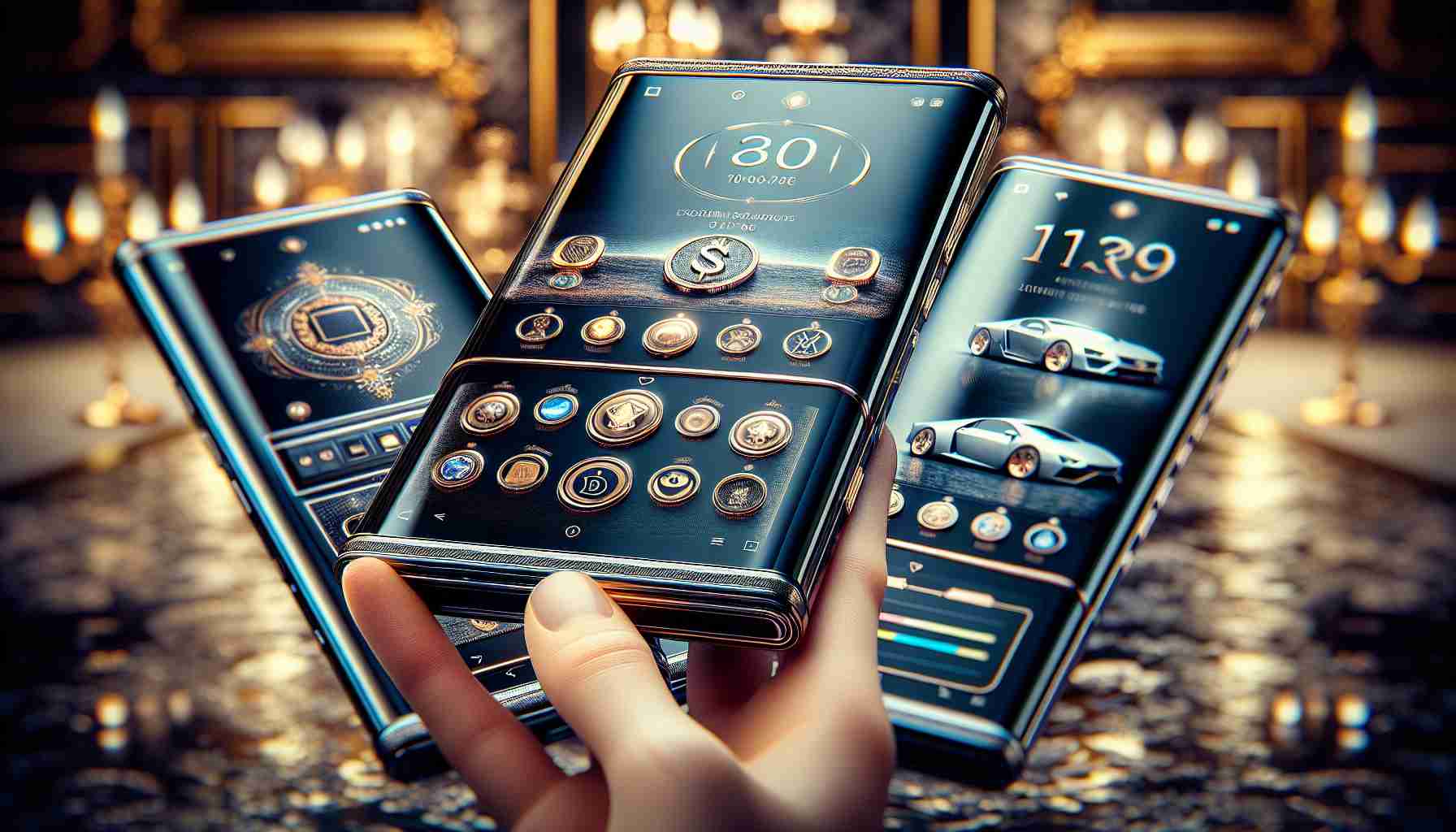In the current digital age, smartphones have become indispensable in our daily lives, cutting across all ages and societal strata. As a result, they’ve emerged as some of the world’s most coveted gadgets. The ever-advancing technological innovations and sophisticated designs entering the market have only escalated their value.
For most people, a smartphone comes with a price tag ranging from about 1,500 to 5,000 shekels—a figure within reach for the majority. However, for the wealthiest echelon, the sky’s the limit. The top-tier phones come with exorbitant prices that cater exclusively to the ultra-rich.
At the fifth position of the world’s priciest smartphones is the iPhone 3G Kings Button, crafted by Austrian jeweler Peter Aloisson. This luxurious device is made from 18-carat yellow gold, which is most commonly used, and is further accentuated with white and rose gold. A shining band of white gold embellished with 138 diamonds encircles the device, while the traditional plastic home button has been replaced by an eye-catching 6.6-carat diamond. Aptly named the “Kings Button,” this feature secures its place among the most extravagant mobile phones on the globe.
Smartphones have not only become a means of communication but also a symbol of status and wealth. High-priced smartphones, like the iPhone 3G Kings Button, often include precious materials and gems, bolstering their appeal to the elite. Exclusive smartphones for the elite are customized to feature unique designs and luxurious materials that ordinary phones do not offer.
One important question regarding exclusive smartphones for the elite is: Who are the manufacturers of high-end luxury smartphones? Apart from small bespoke companies and jewelers such as Peter Aloisson, established luxury brands like Vertu and Goldvish have a history of creating ultra-luxurious smartphones. Sometimes, even mainstream manufacturers like Apple have their products customized by third parties for wealthy clientele.
A key challenge associated with exclusive smartphones for the elite is ensuring advanced technology maintains pace with luxurious aesthetics. Often, the cutting-edge technology might not be as up-to-date compared with top-tier mainstream smartphones simply because the emphasis is more on the exterior craftsmanship and less on the interior specifications.
A noticeable controversy in the realm of exclusive smartphones can revolve around ethical sourcing and sustainability. The mining of precious metals and stones often raises concerns about environmental damage and ethical labor practices.
The advantages of exclusive smartphones for the elite include:
1. Status Symbol: Ownership can be perceived as a status symbol, projecting wealth and prestige.
2. Exclusivity: They offer exclusivity with unique designs not available to the general public.
3. Personalization: High-end customization options that can include personal engravings, custom materials, and unique features.
Disadvantages include:
1. Cost: The price can be extravagantly high, making them inaccessible to the general population.
2. Technology: They may prioritize aesthetics over the latest technology, possibly resulting in inferior technical performance.
3. Ethics and Sustainability: Questions may arise regarding the ethical sourcing of materials and the environmental impact of production.
For more information on the elite in society and the products catering to them, a suggested related link to the main domain could be Forbes, which often features articles on the world’s wealthy and their expenditures. Another source for information on luxury goods and services, including smartphones, could be Luxury Daily. It’s important to ensure that these URLs are valid before considering them as viable resources.
